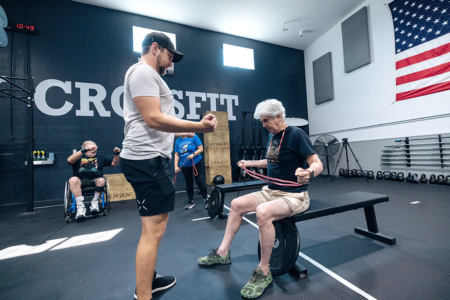Lawrence’s Kansas Suicide Prevention Headquarters has taken thousands of 988 calls since last July, Gov. Laura Kelly’s office says

photo by: John Hanna/Associated Press
Kansas Gov. Laura Kelly speaks during an event at the Kansas Statehouse in Topeka on Thursday, March 24, 2022.
It’s officially been a year since the National Suicide Prevention Lifeline switched to the 988 dialing code, and the Lawrence agency that serves as the Lifeline’s crisis center for all 105 Kansas counties has taken thousands of calls in the time since then.
According to a Monday press release from Gov. Laura Kelly’s office, Kansas Suicide Prevention Headquarters, based here in Lawrence, took an average of 1,230 calls each month from July 2022 to June 2023. An average of 1.2% of calls per month — or about 15 calls — resulted in emergency dispatch, according to the release. Those were calls involving a response by emergency services for imminent risk of harm, generally with the caller’s permission.
“KSPHQ has been so honored to provide lifesaving services throughout Kansas during this first year of 988,” Monica Kurz, KSPHQ’s Vice President of Policy and Prevention, said in the release. “The success we’ve had delivering timely and high-quality crisis mental health support to our neighbors is a testament to the passion and dedication of our counselors and staff as well as the state’s investment in crisis mental health services.”
In the release, Kelly’s office lauds the three-digit dialing code for generating a 73% increase in contacts throughout the state. About 24,000 of the 4 million calls to 988 nationally have been routed in Kansas, compared to 13,867 over the same period the previous year.
The release notes that Kansas is one of only 12 states nationwide to maintain a 90% or better in-state call answer rate, with 988 centers here maintaining a combined answer rate of 88% to 92% month-over-month. Just a few years ago, according to the release, Kansas centers answered only about 60% of National Suicide Prevention Line calls in-state, with many calls rolling over to national backup centers.
The release also lauds Kansas for performing better than its national peers on average wait times. That rate in Kansas is 21 seconds, compared to the national average of 35 seconds.
“Investing in mental health resources like 988 is critical to saving the lives of Kansans in crisis,” Kelly said in the release. “These services make a positive impact by knocking down barriers and stigmas surrounding mental health and connecting people to necessary mental health care professionals and resources.”







